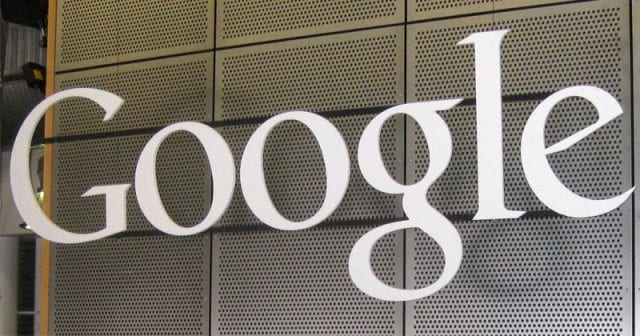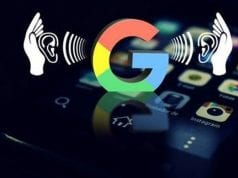
October 15, 2013. Cyberspace. America seems helplessly lost in the age of authoritarian eavesdropping and internet censorship. But repeated revelations have exposed companies like Google, LinkedIn, AT&T and Verizon for secretly spying, stealing, impersonating or censoring their customer’s accounts. How bad has it gotten and what exactly are these corporations doing?
Two types of corporate spying on America
It should be noted that there are two types of internet corporate spying. One has played out in the headlines over the past few years and been going on since 9/11. Uncle Sam has been threatening and pressuring publicly owned companies to spy on their customers for the government. And for the most part, they’ve complied. And those that have complained or resisted have done so mainly because of the costs involved and not their customers’ privacy.
The other type of internet corporate spying is just as secret and even more widespread. Companies from every industry are eager for information and advantages that may result in additional sales and profits. They’re willing to pay big money for it. And the companies with access to that private information – such as cell phone carriers, ISP’s and email providers – are selling it without your knowledge. Even more unethical, they’re now letting the corporations pose as you online so you can endorse their product or service to all your friends and family.
LinkedIn sued
Last month, it was announced that four LinkedIn users filed a lawsuit against the online service for violating their privacy. They’re seeking three things – class action status, an end to the abuse, and financial damages. The company insists it hasn’t done anything wrong and never poses as a user without the consent of that user.
While the case is just beginning, it seems obvious that LinkedIn is standing by its user agreement that must be accepted by internet users before they can open an account. We’ve all seen those online agreements. They’re volumes of legal-speak in a seemingly foreign language that give your consent to the corporation to do whatever they want to you, whenever they want to. The practice is so universal and one-sided, corporations like Apple have been lambasted on shows like The Simpsons and South Park for it.
In LinkedIn’s case, the company is accused of accessing its users’ accounts, taking their email lists and emailing their friends who don’t have LinkedIn accounts. In the emails, LinkedIn tells your contacts that YOU are personally inviting them to join and connect on the service. “This makes me very upset and embarrassed! One of the contacts was a woman I haven’t touched base with for 10 years, and her husband just died – very awkward,” one of the suit’s plaintiffs told Huffington Post.
Taking the most heat recently is Google and its Gmail free email service. After Google was exposed for tracking almost every aspect of every internet user’s life, and then using the information to make huge profits from advertisers and merchants, the corporation was sued by its users for the practice. The company petitioned to have the suit thrown out, but only partially won. The court ruled that all state claims must be dismissed because the federal suit against Google is going forward.
The most vocal critic of Google’s practice of taking advantage of its users for massive profits is, ironically enough, Microsoft. This summer, the company launched a PR campaign titled, ‘Don’t get Scroogled’. First, an allegedly internal Microsoft video ripping Google’s reputation to shreds was “accidentally” leaked to the public.
As detailed by MarketingLand.com, the Microsoft video is a humorous parody of Google’s Chrome ads. More stinging than funny, the video tells viewers, “Google watches everything you do – where you are, who you call, what you search, what you watch, contents of your email, contents of your chats, who your friends are, what apps you own, what you buy, what you listen to – and uses it to make a profit off of you.”
Not to be outdone, Microsoft has recently flooded cable TV channels with its ads condemning Google for violating its Gmail users’ privacy. The ads, done for their Outlook.com email service, are all part of the ‘Don’t get Scroogled’ campaign. The campaign’s website, Scroogled.com, begins by bluntly warning, ‘Google violates your privacy by reading every single word of every single email sent to and from Gmail accounts so they can better target you with ads. Now, they’re going one step further over the line by using that same personal information to spam your inbox with ads that look like real emails.’
In other words, the corporation with a monopoly on both internet search and internet advertising is capturing your personal information by reading your emails and instant messages. Then, it searches the world’s businesses and connects them to you by posing as a real email from a real person. So, the next time you send someone an email and mention how chocolate is your favorite ice cream flavor, don’t be surprised if you never, ever again see an ad for any other ice cream but chocolate. Remember, almost every ad you see on almost every website on the internet is run by Google. The content of those ever-changing ads are personally matched to you whenever you visit any site on the web.
Verizon, AT&T and the Baby Bells
Anyone who has an email address @verizon.net, @att.net, @pacbell.net, @bellsouth.net, @swbell.net or @ameritech.net – be aware that the corporations are filtering and blocking your email to protect you from harmful ideas, the truth and those pesky grassroots movements, even the ones you’ve specifically signed up for.
Don’t like how websites like Whiteout Press are enlightening the people? Are they hurting your profits by exposing all the lawsuits and complaints against your corporation? Just complain to AT&T and Verizon and none of their millions of email customers will ever receive another communication from those independent news outlets again, or any others that expose corporate and government corruption.
Every five days or so, we at Whiteout Press send out our email news blast to the thousands of subscribers that have provided their email address and requested to receive it. And each time, we receive a rejection email from AT&T, Verizon and the Baby Bells listing hundreds of our subscribers whose weekly emails were returned to us to protect them.
After spending considerable time attempting to follow the provided instructions and links to appeal our ‘Block’ by AT&T and the email providers they manage, we found ourselves on a web page with a form asking us what corrective actions we took that make us feel Whiteout Press should be unblocked by the corporation’s censors. One question asked if we removed the offensive web page or pages from the internet. Another asked if we fired any of our employees to correct our recent offense. Our answer to every question was ‘no.’ We stand by our articles, including this one, and didn’t do anything worthy of being blocked in the first place.
Unfortunately, the number of Whiteout Press subscribers who’ve been denied our news articles without their knowledge represents a full five percent of our total subscriber list. While we feared Verizon, AT&T and the Baby Bells combined might represent a larger number of email users than that, it’s still a large number of affected subscribers.
AT&T and their longtime censorship
The fact that AT&T is blocking their email customers from receiving a wide array of internet content that everyone else in America has access to isn’t anything new. As far back as 2007, the corporation was being condemned for censoring political comments on its internet webcasts by such celebrities as Pearl Jam’s Eddie Vedder.
When Vedder criticized then President George Bush during one webcast interview with the popular rock star, the sound was cut as if profanity were being censored. After being busted by online viewers of the staunchly independent Pearl Jam, the corporation issued an apology. A 2007 Wired.com article quotes the statement, “We’re upset too, and embarrassed by this mistake which is totally against our policy – of never, ever censoring political speech.”
Coming from one of the most anti-free speech corporations on Earth, the statement drew widespread criticism and condemnation. The Wired.com report quoted one outraged free speech advocate calling the company a liar over its claim of accidentally censoring Eddie Vedder’s anti-George Bush statement.
The response states, ‘I read your article about this and it makes me so angry that AT&T says this is a one time mistake. They did the same thing on the webcasts from Bonnaroo in June during the John Butler Trio show when he was talking about the lack of response from our government during Katrina, and also during the Flaming Lips show when the lead singer was talking about how much George Bush had screwed up. I was at both of those live shows and saw the webcasts later. The sound did not cut out at any other time – only when someone was talking about George Bush or the government in a negative way. It was not a mistake, it is full out censorship.”
AT&T shuts down Anonymous
In 2009, AT&T took on its most formidable foe when it blocked all of its millions of internet customers from accessing the website img.4chan.org. Not well known to many, the site was wildly popular with young people and the tech-savvy internet underground. Links to sites with everything from drugs to child porn to gambling to revolution could be posted and found on the massive message board.
And while AT&T apparently had no problem allowing links to websites for child pornography and illegal drugs to reach its customers, it finally blocked 4chan when an even more dangerous element began using the site – the socially conscious kids from Anonymous. The underground site instantly became the secret gathering spot for Anonymous members across the globe where they vented their frustrations, told wildly fictitious stories, and in some cases, planned cyber attacks that actually happened against the world’s largest corporations.
Responding to the vast outcry of censorship, AT&T issued a statement insisting that the act of blocking its customers from getting to the 4chan website was to protect them and not an act of political censorship. And as illustrated at the beginning of the article, it was all over the complaint by one single person.
The statement read, “Beginning Friday, an AT&T customer was impacted by a denial-of-service attack stemming from IP addresses connected to img.4chan.org. To prevent this attack from disrupting service for the impacted AT&T customer, and to prevent the attack from spreading to impact our other customers, AT&T temporarily blocked access to the IP addresses in question for our customers. This action was in no way related to the content at img.4chan.org; our focus was on protecting our customers from malicious traffic.”
While the corporation could be telling the truth that the block had nothing to do with Anonymous and was only to protect their customers from a malicious virus, AT&T isn’t known for protecting its customers from anything. Repeatedly voted the worst company in the world for customer service, the corporation is known for something else – political censorship. And nobody knows that better than the hundreds of Whiteout Press subscribers who will never read this article because AT&T insists it’s too dangerous for their customers to see.
Recent Whiteout Press articles:
Who really discovered America?
What’s Obama doing with America’s Nuclear Warheads?
Half of Congress drunk during Shutdown Vote
Mom launches Petition, Heart Foundation endorsing Unhealthy Foods








